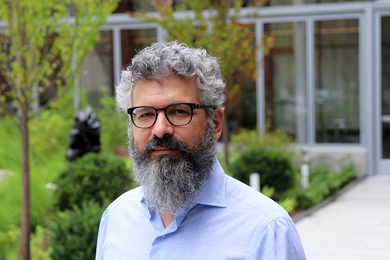Three MIT economists - Esther Duflo, Amy Finkelstein and Iván Werning - have been singled out by The Economist magazine as among the world's eight best young economists, who are "making a big splash in their discipline and beyond."
The magazine compiled the list of the top eight, who all received their PhDs in the past 10 years, by soliciting recommendations from leading economists.
Duflo, the Abdul Latif Jameel Professor of Poverty Alleviation and Development Economics at MIT and the director of the Abdul Latif Jameel Poverty Action Lab, "received more recommendations than any other economist," according to the Dec. 30 article on the selection. Duflo was lauded for carrying out randomized trials of development projects, such as fertilizer subsidies and school recruitment, which determine a project's effectiveness.
Finkelstein, MIT professor of economics, was singled out for her work studying annuities in Britain. Economics professor and macroeconomist Werning was described by the magazine as "an economist's economist" and an "elegant theorist whose early contributions provided streamlined proofs that other thinkers could make use of."
Department of Economics Head Ricardo Caballero said The Economist "confirms that we are doing something right. We put an enormous effort in our PhD program and in hiring the best young people around. Relative to other top places in economics, who tend to hire already established people, our growth strategy has always been to bring the best young minds to the place and foster their development. This makes ours a very dynamic and exciting place to be in, where a disproportionate share of the new and exciting research is done."
Glenn Ellison, the Gregory K. Palm Professor of Economics and the associate department head, who was himself himself singled out as a promising young economics by the magazine 10 years ago, said it was no surprise that the three MIT professors worked in very divergent areas.
"Besides being leaders in the profession as a whole, the three faculty members the Economist identified are people we've worked hard to attract and keep because they are also great internal leaders who contribute so much to the intellectual atmosphere in their respective groups," Ellison said.
A version of this article appeared in MIT Tech Talk on January 14, 2009 (download PDF).





